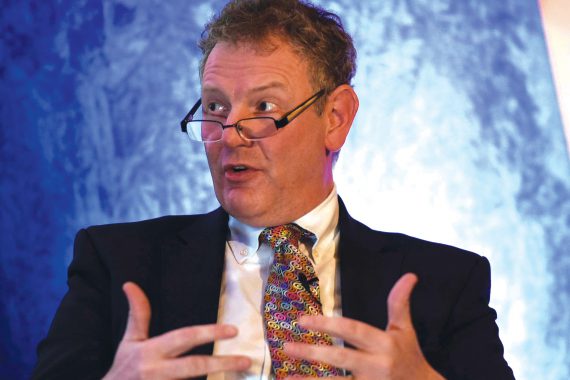PAs and physios could study medicine part-time to boost doctor numbers

Nurses and physician associates could be given the chance to study for a medical degree part-time while working in the NHS, under education bosses’ plans to expand medical school places.
Members of the Health Education England board today set out ambitions to revolutionise the way medicine is taught in the NHS while boosting the GP workforce and tackling diversity issues.
This included recognition that if the NHS is serious about increasing GP numbers and shifting care into the community then the medical curriculum should be ‘steeped in’ general practice and community-based teaching.
Introducing the plans, HEE chief executive Professor Ian Cumming said: ‘It’s not rocket science. If the curriculum is steeped in teaching of mental health and general practice you get a much higher percentage of graduates who work in that area in future.’
The NHS is expanding the number of medical school places by 25%, around 1,500 more places a year in a bid to deliver the Government ambition of making the ‘NHS in England self-sufficient in doctors by 2025’.
Professor Cumming added that HEE wanted ‘to see this as a real opportunity to take a step forward in innovation about how we teach medicine’, including ‘the concept of part-time medical degrees.’
He said: ‘If you’re a physician associate, or a pharmacist, or a physiotherapist or a nurse, why can’t you work for two or three days a week in that role and study medicine for two or three days a week and gain your medical degree that way?’
At the meeting, HEE leaders said the scale of this expansion meant for the first time they could address the root cause of the workforce shortages experienced in parts of England and some specialties.
HEE director of education and quality Professor Wendy Reid said the NHS had lacked a focus on ‘local doctoring’.
But Professor Reid said that as typically around 50% of doctors stay in the region where they graduate, HEE wants future doctors being rooted in their community and local health systems.
She said: ‘If you look back at medical schools allocations in the past, they have been based on the researcher system… and the need for Nobel Prize winning academics. We don’t belittle that, but we have not failed to produce the academics, we never have.
‘We have a huge reputation internationally but we have not addressed the issue of local doctoring.’
The Department of Health consultation on how these places should be allocated across medical schools closed last month.
While the DH has not provided its official response, HEE has been briefed on key criteria that medical schools should look to address when applying to expand their intake with some of the 1,000 new places funded in 2019/20.
HEE board papers said these include encouraging social mobility, meeting local workforce need, supporting shortage medical specialties and exploring new technologies and innovation.
The news comes as it was revealed this week that NHS England will look to expand its overseas GP recruitment programme from 500 to around 2,000 in a bid to try to achieve the Government’s pledge of 5,000 extra GPs by 2020.
Pulse October survey
Take our July 2025 survey to potentially win £1.000 worth of tokens












